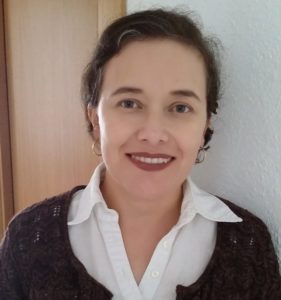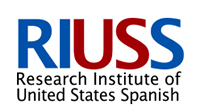
DR. MARÍA BETULIA PEDRAZA PEDRAZA
Scientific Committee Director of Corpus Development
María Betulia Pedraza Pedraza obtained her PhD in Spanish Philology at the Autonomous University of Barcelona (UAB) after working as a researcher in the Neolcyt Research Group at the UAB. Her doctoral dissertation is titled “Democratization of the Lexicon of Specialization in Panhispanic Linguistic Policy,” a doctoral program funded by Colciencias, Colombia. She did research at the Centre for Lexicography of Aarhus University in Denmark through an Erasmus Plus scholarship. Dr. Pedraza is a member of the RIUSS Scientific Committee and she is RIUSS Corpus Development Director.
She earned a B.A in Languages (Spanish and English) in 2000 at the Francisco José de Caldas University in Bogotá, Colombia. She holds a Master in Spanish Linguistics (2005) from Instituto Caro y Cuervo in Colombia. In 2011 she received a Fundación Carolina post-graduate scholarship in Advanced Studies of Hispanic Lexicography (2011) at the Royal Spanish Academy (RAE) in Madrid. She holds Master degrees from the University of León, Spain (Education of Teachers of Spanish as a Foreign Language, 2014) and the University of Jaén, Spain (Teaching of Spanish as a Foreign Language, 2015).
Dr. Pedraza has more than 15 years of university-level teaching focused on research of Spanish as a native language, Spanish as a Second Language and Spanish Lexicography at various Colombian institutions.
Linguist, lexicographer and trainer of teachers of Spanish as a native and foreign language, Dr. Pedraza advised the North American Academy of the Spanish Language (ANLE) on its glossary of United States Spanish terms and the Bilingual electronic dictionary sáliba – spanish, a project of the Instituto Caro y Cuervo, Colombia. She worked as a lexicographer at SM Editions on the DIDEC Colombian Dictionary. She also received a scholarship from AECID to help develop the Dictionary of Colombianisms for the Colombian Academy of the Spanish Language.
